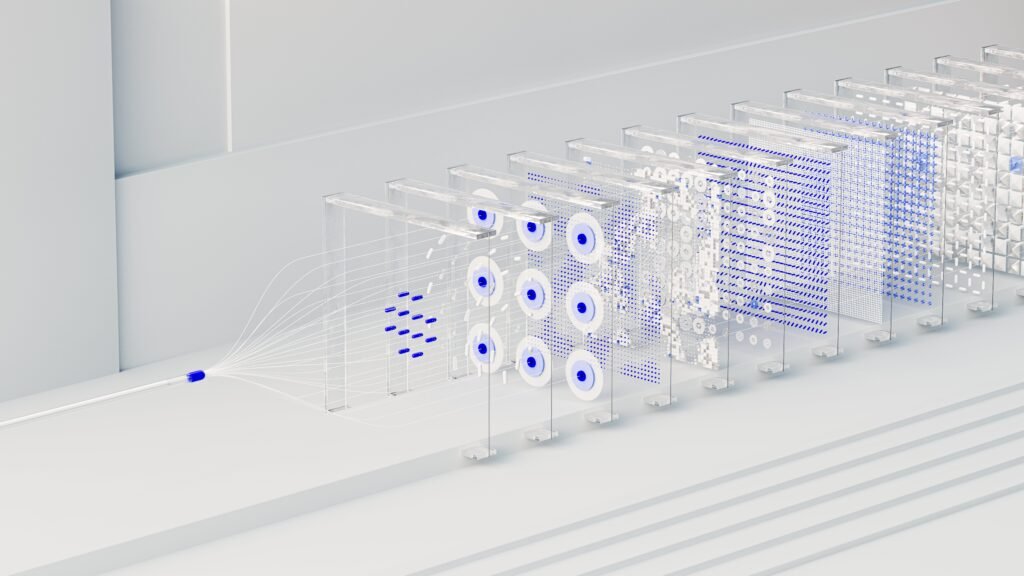Artificial Intelligence (AI) has become a buzzword in recent years, but what exactly is an AI system? In simple terms, AI refers to the development of computer systems that can perform tasks that typically require human intelligence. These intelligent machines are designed to analyze and interpret vast amounts of data, learn from patterns and experiences, and make decisions or take actions based on that information. From virtual assistants like Siri and Alexa to self-driving cars, AI systems are transforming the way we live and work, making our lives more efficient and convenient. So, what makes an AI system so powerful? Let’s explore the intricacies of this cutting-edge technology to uncover its potential and impact.
What Is Artificial Intelligence System
Artificial Intelligence (AI) refers to a branch of computer science that focuses on creating intelligent machines capable of executing tasks that normally require human intelligence. These AI systems are designed to analyze large amounts of data, learn from patterns, and make decisions with minimal human intervention. AI systems are rapidly transforming various industries, from healthcare to finance, by revolutionizing the way tasks are performed, improving efficiency, and enabling businesses to gain a competitive edge.

Definition of Artificial Intelligence
Artificial Intelligence is the field of study that encompasses the development of computer systems capable of performing tasks that typically require human intelligence. These tasks include natural language processing, problem-solving, learning from experience, and making decisions. AI systems are designed to interpret data, recognize patterns, and adapt their behavior autonomously, mimicking human cognition to varying degrees.
Overview of AI Systems
AI systems are built to accomplish tasks by simulating human intelligence. They are designed with algorithms and models that enable them to interpret, analyze, and reason over vast amounts of data. These systems rely on various components such as machine learning, natural language processing, computer vision, and expert systems to perform specific tasks.
Applications of AI Systems
AI systems have a wide range of applications across different industries, improving efficiency, accuracy, and decision-making capabilities. In healthcare, AI systems can analyze medical data to aid in diagnosing diseases, predict patient outcomes, and assist in developing personalized treatment plans. In finance, AI systems can automate repetitive tasks, detect fraudulent activities, and provide valuable insights for investment decisions. These systems also find applications in autonomous vehicles, virtual assistants, manufacturing, and customer service, among others.
Key Components of AI Systems
AI systems consist of several key components that work together to enable intelligent behavior. These components include:
-
Machine Learning: Machine learning is a subset of AI that focuses on developing algorithms that allow systems to learn and improve from experience without being explicitly programmed. It enables AI systems to recognize patterns, make predictions, and continuously adapt their behavior.
-
Natural Language Processing (NLP): NLP is concerned with enabling computers to understand, interpret, and generate human language. It involves tasks such as speech recognition, language translation, sentiment analysis, and text generation. NLP enables AI systems to communicate effectively with humans, facilitating tasks like virtual assistants and chatbots.
-
Computer Vision: Computer vision enables AI systems to analyze and understand visual information from images or videos. It involves tasks like object recognition, image segmentation, and facial recognition. Computer vision is crucial in applications such as autonomous vehicles, surveillance systems, and medical imaging.
-
Expert Systems: Expert systems are AI systems that utilize knowledge and expertise in specific domains to perform tasks that would typically require human intervention. These systems rely on a knowledge base and inference rules to reason and make decisions. Expert systems find applications in fields like medical diagnosis, cybersecurity, and financial analysis.

Types of AI Systems
AI systems can be categorized into different types based on their capabilities and functionalities. These types include:
-
Reactive Machines: Reactive machines are AI systems that operate solely on the current state of the environment. They do not have memory or the ability to use past experiences to inform their decision-making. Examples of reactive machines are chess-playing AI systems that analyze the current game state to make the next move.
-
Limited Memory: Limited memory AI systems can use past experiences to inform their decision-making, but their memories are limited to a specific time frame. These systems can improve their responses and behaviors based on recent events, making them more adaptable.
-
Theory of Mind: Theory of mind AI systems have an understanding of human emotions, beliefs, and intentions, allowing them to interact and respond to human behaviors more effectively. These systems can recognize and interpret the emotions and mental states of others.
-
Self-Awareness: Self-aware AI systems possess consciousness and a sense of self. They have a deep understanding of their own existence, emotions, and intentions. Self-aware AI is an area of ongoing research and development.
Machine Learning in AI Systems
Machine learning plays a fundamental role in AI systems by enabling them to learn from data and improve performance over time. It involves creating algorithms that analyze and learn patterns from large datasets, allowing AI systems to make predictions and decisions independently. Supervised learning, unsupervised learning, and reinforcement learning are common techniques used in machine learning to train AI systems.

Natural Language Processing in AI Systems
Natural Language Processing (NLP) enables AI systems to understand, interpret, and generate human language. Through speech recognition, language translation, sentiment analysis, and text generation, NLP allows AI systems to communicate effectively with humans. This technology is widely used in applications like virtual assistants, chatbots, language translation tools, and voice-controlled systems.
Computer Vision in AI Systems
Computer vision enables AI systems to analyze and interpret visual information from images or videos. By performing tasks such as object recognition, image classification, and facial recognition, computer vision enables AI systems to understand and interpret visual data. This technology finds applications in fields like autonomous vehicles, surveillance systems, robotics, and medical imaging.
Expert Systems in AI Systems
Expert systems are AI systems that utilize knowledge and expertise in specific domains to perform tasks traditionally carried out by human experts. These systems rely on a knowledge base and a set of rules to reason, make decisions, and provide recommendations. Expert systems find applications in various domains, including healthcare diagnosis, financial analysis, legal reasoning, and cybersecurity.
Challenges and Limitations of AI Systems
While AI has made remarkable progress, there are still several challenges and limitations to be addressed. One key challenge is the lack of transparency in AI decision-making. Deep learning algorithms can be complex and difficult to understand, making it challenging to interpret the reasoning behind an AI system’s decisions. Additionally, ethical concerns such as bias, privacy, and job displacement need to be carefully addressed to ensure the responsible and ethical use of AI technologies.
In conclusion, artificial intelligence systems have become a fundamental technology shaping the present and future of various industries. By simulating human intelligence, these systems can autonomously analyze data, make decisions, and perform complex tasks. With components like machine learning, natural language processing, computer vision, and expert systems, AI systems have revolutionized the way tasks are performed, leading to increased efficiency, accuracy, and innovation across a wide range of applications. However, the ongoing development and deployment of AI systems also require careful consideration of ethical concerns and the challenges that come along, ensuring that AI continues to benefit humanity in a responsible and ethical manner.




